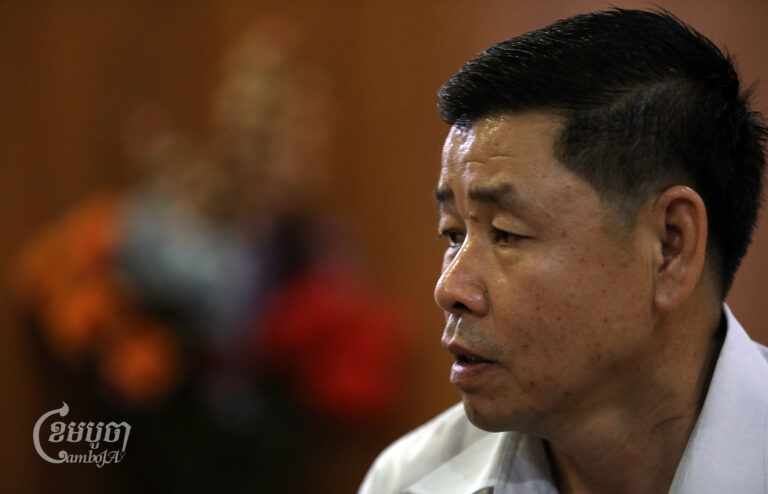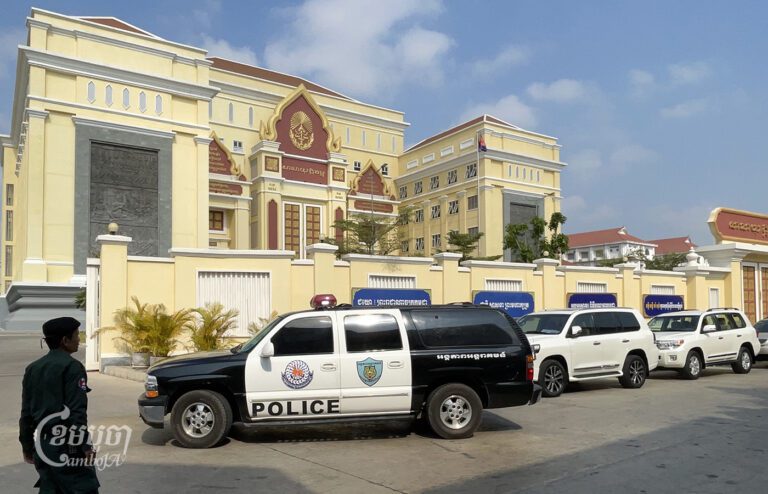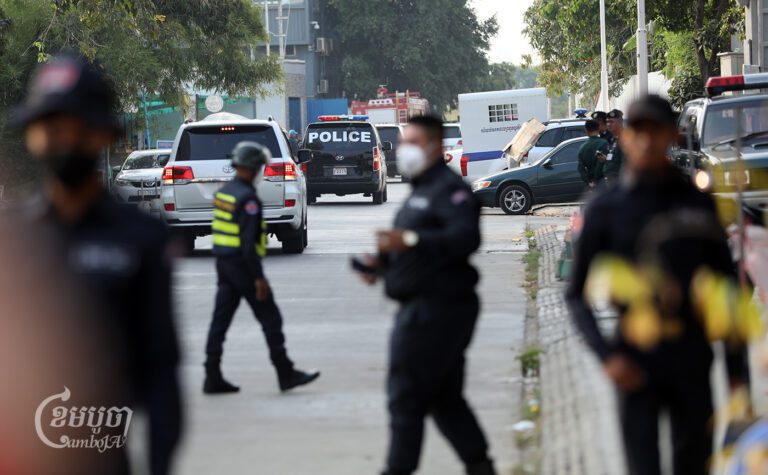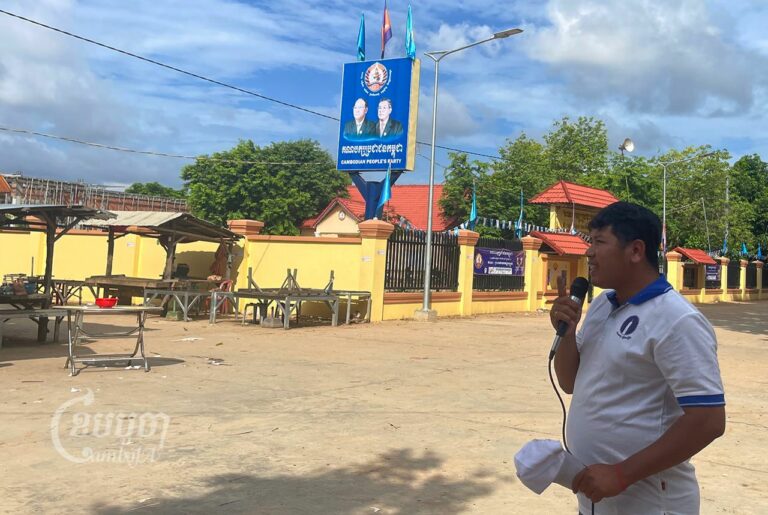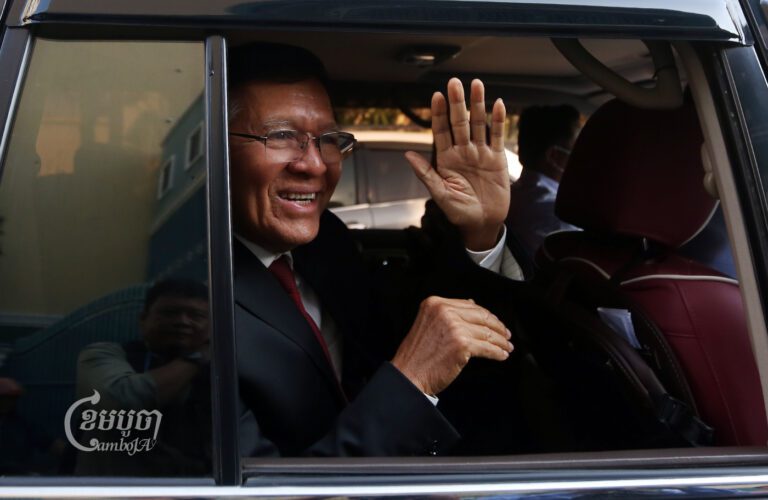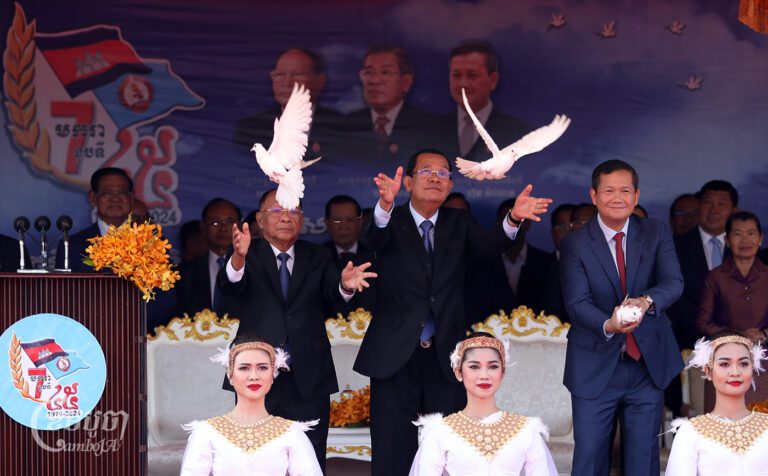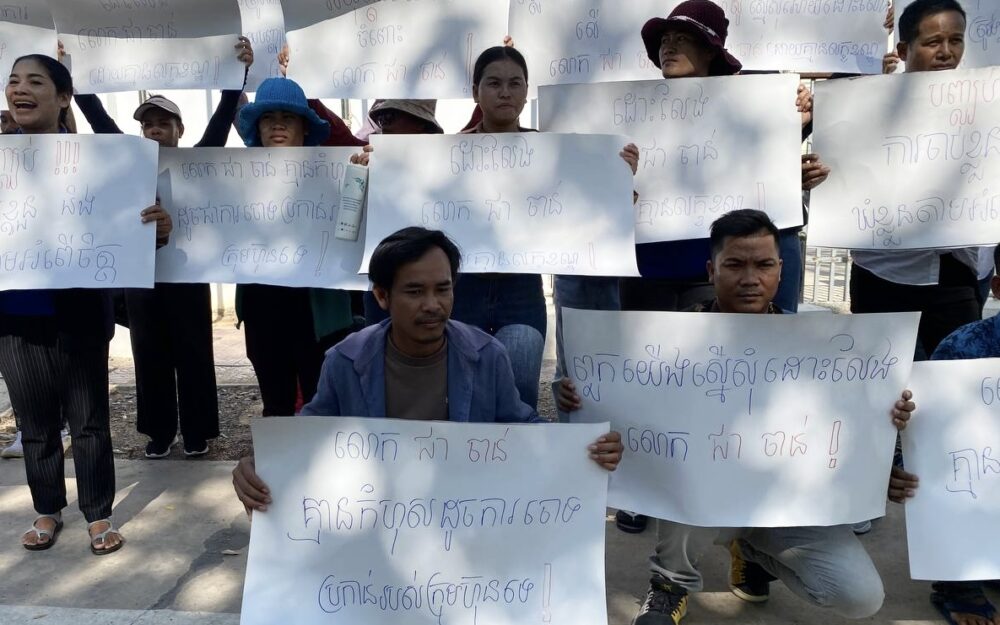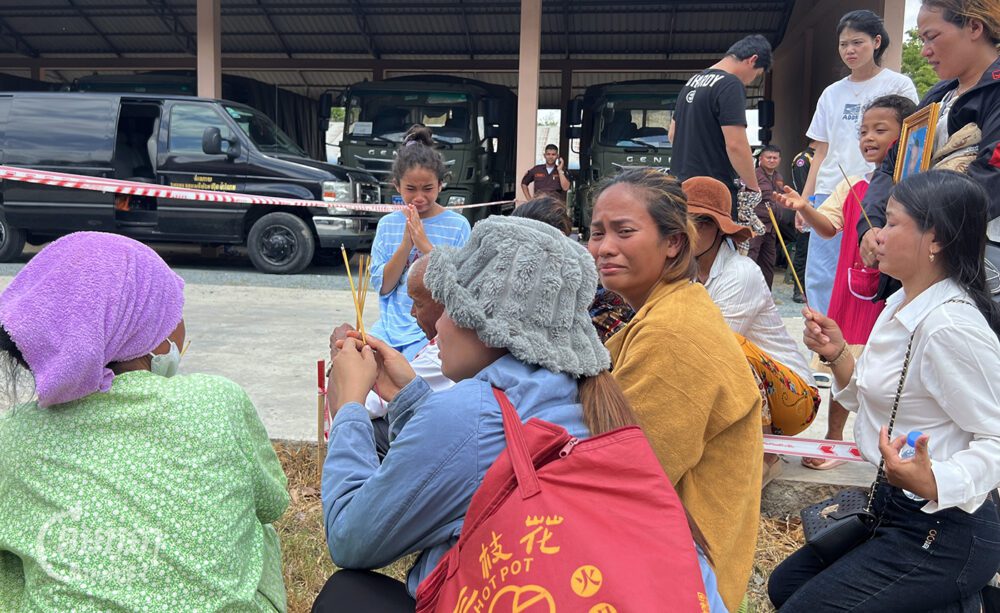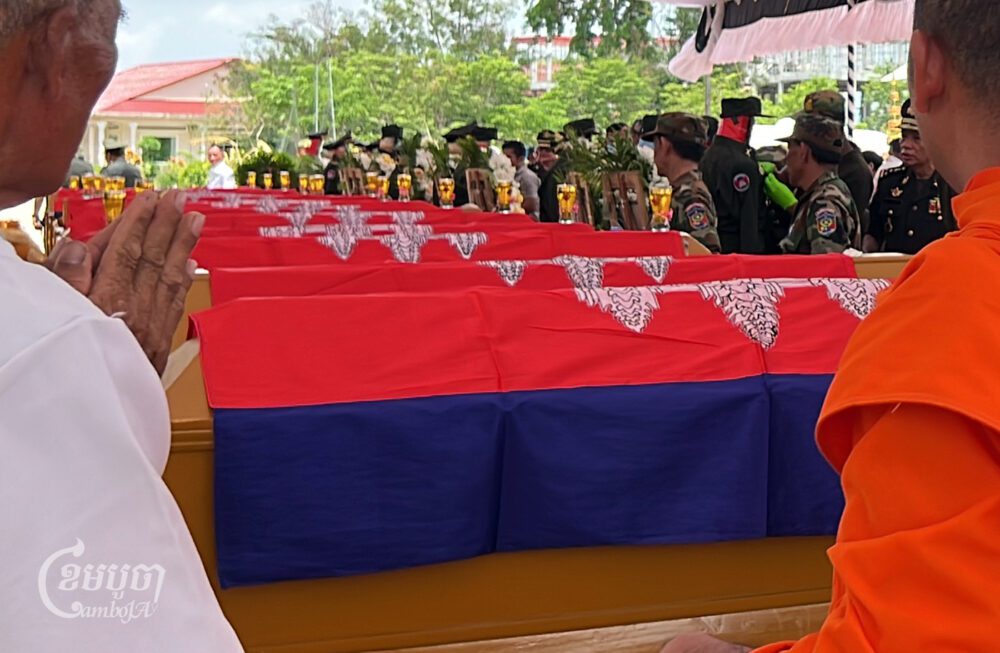Another jailed defendant in a trial of 39 ex-CNRP members accused of plotting against the state was questioned in court Thursday about alleged phone conversations in which another man said he wanted exiled opposition leaders to return to Cambodia “to change the country.”
Defendant Khan Bunpheng, the former Prek Preah Sdech commune chief in Battambang city, maintained his innocence in court, saying he had not responded to the man, identified as Seng Sokleng, a resident of the same commune, and had even blocked his phone number.
During last week’s hearing in the case, another jailed defendant, CNRP activist Kong Mas, also cast doubt on prosecutors’ evidence and called for audio of private phone conversations, allegedly showing a plot, to be played in court.
Other defendants in the case, which is linked to their support for the unsuccessful attempt by ex-CNRP vice president Mu Sochua to return to Cambodia early last year, include Sochua herself, another opposition vice president, Eng Chhai Eang and ex-party leader Sam Rainsy. All three and other senior party leaders and activists have lived abroad for years, avoiding prison sentences from various convictions in other cases, with some saying they have been blocked from returning by authorities.
During Thursday’s hearing, deputy prosecutor Seng Hieng read aloud two transcripts of private phone conversations provided by the National Police’s intelligence department allegedly between Bunpheng and Sokleng.
“A man called you [Bunpheng], ‘do you want to go to Phnom Penh?’” Hieng said, reading from the transcript of alleged conversations on December 24 and 27, 2020 between Bunpheng and Sokleng.
“Why will you go there?” Bunpheng allegedly asked, according to Hieng. Sokleng responded: “The country will be changed but the time hasn’t yet come, and I will pay you 50,000 riel [$12.50] to get to Phnom Penh to welcome Mu Sochua with me.”
“I want to see their return in order to change the country,” Sokleng added, according to Hieng.
Bunpheng, 64, told the court that Sokleng was also arrested in December 2020 for alleged plotting over expressed support for Sochua’s planned return, but Sokleng was later granted bail.
Bunpheng denied saying what he was accused of saying by the prosecutor.
“I did not say that,” the defendant said. “It was recorded that Sokleng had called me, and I didn’t respond to him.”
Bunpheng said Sokleng had been calling him at least two to three times per day, annoying him to the point that Bunpheng blocked Sokleng’s phone number. Then Sokleng came to Bunpheng’s house and argued with him, the defendant said.
“I have considered that [Sokleng] was mental ill because he said whatever he wanted and didn’t listen to other people,” Bunpheng said. “He always disturbed me. Sometimes, I held the phone away from me.”
Defense lawyer Sam Sokong said after the hearing that the transcripts submitted as evidence mostly showed Sokleng talking and his client not speaking much.
“I think that there is no evidence to show Khan Bunpheng was involved in a plotting charge because key evidence was a conversation recorded by police,” the lawyer said.
CamboJA could not immediately find contact information for Sokleng on Thursday.
Yi Soksan, a senior monitor at rights group Adhoc, called on the court to drop all politically motivated charges against former opposition officials.
“We have begged that they should resolve that case through political means,” he said, noting that the public clearly understood that the case was political in nature.
Soksan said according to the transcripts read in court, it seemed Sokleng had done most of the talking, and authorities may have edited the audio or transcripts in order to implicate Bunpheng.
“We have seen likely editing of the evidence to frame him in order to charge him with plotting,” Soksan said. “He was just a low-level commune official.”
Sochua, the former CNRP deputy who has lived abroad since 2017 when the party was dissolved, told CamboJA in an email last week that banning exiled Cambodian politicians from returning to their country for their own trials is unconstitutional.
“What must be protected so justice can be rendered to the accused is for them to be tried by an independent court and with full implementation of the principles of a fair trial,” she said. “Mass trials are not conducted in a country with rule of law.”
The trial is scheduled to continue on October 6.



